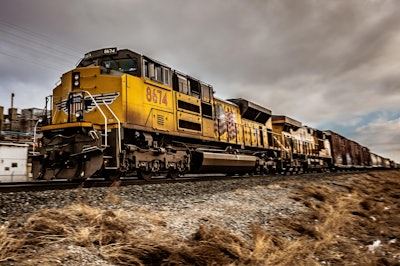
On August 16, thePresidential Emergency Board (PEB)submitted to President Biden recommendations to helpresolve the ongoing contract disputebetween major freight railroads and unions.
According toreports, the PEB report suggests that — before the PEB was created — the two sides’ proposals widely diverged in value by more than $9 billion.
After working with both parties, the PEB made several recommendations to help resolve the dispute, including a 24% compounded wage increase over five years (some retroactive).
The wage-increase recommendation was 7% above the carriers’ offer and 7% below the unions’ offer, but also included annual service-recognition bonuses.
Other recommendations include removing the cap on monthly employee healthcare contributions so that they equal 15% of the plans' overall cost of providing covered benefits, and jointly rebidding contracts to ensure that current costs are competitive.
With the PEB’s submission, theRailway Labor Actnow requires a 30-day cooling off period, after which, if railroads and unions still cannot come to agreement, strikes and lockouts are allowed to take place.
President Biden appointment emergency board to avoid rail strike
On July 18, President Biden signed an executive order (EO) to prevent — for at least 60 days — anationwide strike by U.S. railway workersthat would deprive the country of essential transportation services.
The unions and railroads had 30 additional days to negotiate a new deal before entering a “self-help” period in mid-September, during which railroads can lock out workers and workers can strike.
The core issues of the dispute involve salary, benefits and working conditions.
Talks between major freight railroads, includingUnion Pacific,BNSF RailwayandCSX, and unions representing 115,000 workers have dragged out for more than two years.
Grain industry impact
Because the start of the self-help period coincides with the start of the harvest season, grain shippers could be especially impacted.
According toreports, America's rail network is already feeling the strain from a year's worth of record-breaking imports, and rail backlogs are a leading contributor to congestion at key U.S. seaports.
Throughout 2022, agricultural shippers have dealt with significantlydeteriorated rail service.
TheSurface Transportation Board(STB) held a two-day hearing in April, with testimony from agricultural groups, including theNational Grain and Feed Association (NGFA)describing costly ongoing problems.





















